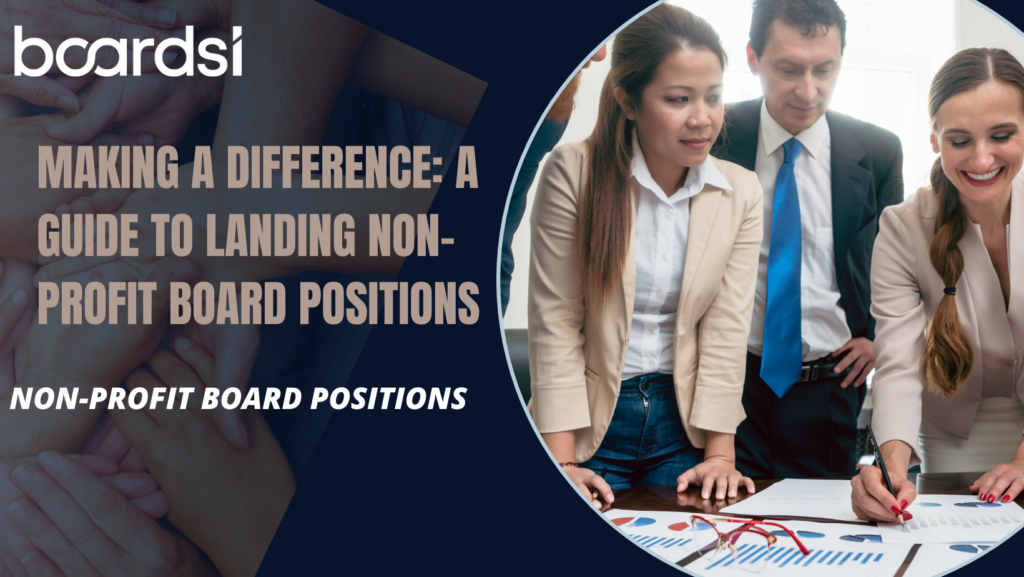The world of non-profit boards offers a unique opportunity to combine your passion with purpose, contributing to causes you care about while gaining valuable experience and leadership skills. But navigating the path to securing a non-profit board seat can feel daunting. Fear not, changemakers! This guide equips you with the knowledge and strategies to position yourself effectively for non-profit board positions, empowering you to make a real impact.
. Exploring the Non-Profit Landscape:
- Diverse Causes & Organizations: From environmental protection to healthcare advocacy, non-profit boards encompass a vast array of causes and organizations. Identify your areas of interest and align your skills with their needs.
- Understanding Board Structures & Roles: Familiarize yourself with different board structures, typical member profiles, and the specific roles and responsibilities involved.
- Researching Potential Opportunities: Utilize resources like Boardsi, non-profit websites, and professional networks to discover relevant board vacancies.
2. Building Your Non-Profit Appeal:
- Highlighting Relevant Experience: Showcase your professional and volunteer experience, emphasizing skills applicable to non-profit governance, such as fundraising, strategic planning, or marketing.
- Demonstrating Passion & Commitment: Express your genuine interest in the organization’s mission and values, highlighting your personal connection to the cause.
- Developing Board-Specific Skills: Consider participating in non-profit board development programs or workshops to enhance your governance knowledge and leadership capabilities.
3. Mastering the Application & Interview Process:
- Tailored Applications: Customize your resume, cover letter, and responses to specific board vacancy requirements, demonstrating a clear understanding of the organization’s goals and needs.
- Interview Preparation: Research the organization thoroughly, anticipate common interview questions, and prepare confident, articulate responses showcasing your value proposition.
- Leveraging Expertise: Consider utilizing Boardi’s resources and expertise to optimize your application and interview strategy for non-profit boards.
4. Beyond the Basics: Building a Thriving Board Journey:
- Continuous Engagement: Actively participate in board meetings, committees, and fundraising initiatives, demonstrating your commitment and value.
- Sharing Your Expertise: Leverage your professional skills and experience to contribute meaningfully to the organization’s success.
- Advocating for Diversity & Inclusion: Champion diverse perspectives and promote a more inclusive board environment.
- Networking & Collaboration: Build relationships with fellow board members and other stakeholders, fostering collaboration and driving positive change.
Remember: Earning a non-profit board position is about more than just your qualifications; it’s about your passion, commitment, and ability to contribute meaningfully to the organization’s mission. By following these key steps and utilizing the resources available, you can transform your desire to make a difference into a rewarding reality.
#nonprofitboards #boardofdirectors #nonprofitgovernance #socialimpact #makeadifference #volunteer #leadershipdevelopment #boardsI #diversityinboards #nonprofit #community #changemaker #volunteerism #boardapplication #interviewtips #networking #impactfulcareer #careershift #purpose #causes









